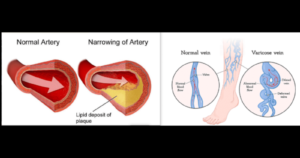Mental health primarily focuses on the psychological and emotional aspects of well-being, while behavioral health encompasses a broader spectrum, including the interplay between behaviors and various dimensions of health, such as mental, emotional, and physical well-being.
Mental health refers to a person’s emotional, psychological, and social well-being. It encompasses various aspects of life including how we think, feel, and act. Good mental health means being able to cope with the normal stresses of life, work productively, and contribute to our community. It involves factors such as emotional resilience, the ability to form and maintain healthy relationships, and the capacity to adapt to change.
Behavioral health, on the other hand, is a broader term that includes both mental health and substance use disorders. It focuses on how behaviors impact overall health and well-being. This encompasses not only mental health conditions like depression, anxiety, and bipolar disorder, but also substance abuse and addiction issues. Behavioral health approaches often involve therapies, interventions, and support systems aimed at promoting positive behaviors and addressing harmful ones.

Key differences between Mental health vs Behavioral Health
| Mental Health | Behavioral Health |
|---|---|
| Primarily concerns psychological well-being. | Includes mental well-being and wider behaviors, habits, and lifestyle choices |
| Mental processes, emotions, and cognitive functions. | Observable behaviors and their impact on health and wellness. |
| Psychotherapy, medication, counseling for specific conditions. | Behavioral therapies, lifestyle modifications, addiction treatment, and interventions targeting health-related behaviors. |
| Historically linked with psychiatry, psychology, counseling. | Involves psychology, psychiatry, social work, counseling, public health, and more. |
| Focuses on diagnosing, treating mental illnesses after onset. | Emphasizes preventive measures and early interventions targeting behavioral factors. |
| Acknowledges the connection between mental, emotional, and physical health. | Recognizes the interplay of psychological, social, environmental, and biological factors shaping behavior and health. |
Key Similarities between Mental health and Behavioral health
1. Holistic Approach: Both mental health and behavioral health take a holistic approach to understanding individuals’ well-being. They consider biological, psychological, social, and environmental factors that influence a person’s mental and emotional state.
2. Focus on Functioning: Both fields focus on assessing and improving individuals’ functioning in various aspects of life, such as relationships, work, and daily activities. They aim to help individuals achieve optimal levels of functioning and overall well-being.
3. Interdisciplinary Perspective: Mental health and behavioral health draw from various disciplines, including psychology, psychiatry, social work, counseling, and public health. Professionals in both fields collaborate to provide comprehensive care and support for individuals experiencing mental health challenges.
4. Emphasis on Prevention and Intervention: Both mental health and behavioral health emphasize the importance of prevention and early intervention to address issues before they escalate. They employ strategies such as education, therapy, and community support to prevent mental health problems and promote resilience.

5. Stigma Reduction: Both fields work to reduce stigma associated with mental health issues and seeking help. They aim to promote understanding, acceptance, and support for individuals experiencing mental health challenges and encourage help-seeking behavior.
6. Person-Centered Approach: Mental health and behavioral health both prioritize a person-centered approach, where the individual’s unique needs, preferences, strengths, and goals guide assessment and treatment planning. This approach emphasizes collaboration between the individual and their healthcare providers to tailor interventions to their specific circumstances.
7. Promotion of Well-being: Both fields are concerned with promoting overall well-being, not just addressing symptoms or disorders. They emphasize the importance of factors such as social support, self-care, healthy coping strategies, and resilience in maintaining mental and emotional health.
Focus and Perspective of Mental Health and Behavioral health
Mental Health Focuses and Prospective
- Emotional Well-being: Understanding and managing emotions effectively is crucial for mental health. This includes recognizing and expressing feelings in a healthy manner.
- Psychological Well-being: This involves aspects such as self-esteem, resilience, and coping mechanisms in the face of challenges.
- Cognitive Health: Mental health also encompasses cognitive processes like thinking, reasoning, problem-solving, and decision-making.
- Social Connections: The quality of relationships and social support networks greatly influences mental well-being.
- Physical Health: There’s a bidirectional relationship between physical and mental health. Taking care of one’s physical health, such as through exercise and nutrition, can positively impact mental well-being.
- Environmental Factors: The environment we live in, including factors like socio-economic status, access to resources, and exposure to stressors, can significantly affect mental health.
- Cultural and Societal Context: Cultural beliefs, norms, and societal attitudes towards mental health play a significant role in shaping individuals’ perspectives and experiences.
- Holistic Approach: Adopting a holistic approach means considering all aspects of a person’s life and well-being rather than focusing solely on symptoms or specific issues.
- Preventive Measures: Promoting mental health involves not only treating mental illness but also implementing preventive measures such as stress management techniques, education, and early intervention programs.
- Stigma Reduction: Overcoming stigma associated with mental health issues is essential for creating an environment where individuals feel comfortable seeking help and support.
- Resilience Building: Building resilience through various strategies such as developing healthy coping mechanisms and fostering a sense of purpose can enhance mental well-being.
- Access to Care: Ensuring equitable access to mental health services, including therapy, medication, and support groups, is crucial for addressing mental health needs effectively.

Behavioral health Focuses and Prospective
- Physical Activity: Regular exercise and movement have been shown to positively affect mood and reduce symptoms of depression and anxiety.
- Nutrition: A balanced diet rich in essential nutrients supports brain function and overall mental health.
- Sleep Habits: Quality sleep is crucial for cognitive function, emotional regulation, and overall well-being.
- Stress Management: Techniques such as mindfulness, meditation, and deep breathing can help reduce stress levels and improve mental resilience.
- Social Connections: Maintaining supportive relationships and engaging in social activities can foster a sense of belonging and reduce feelings of loneliness and isolation.
- Substance Use: Avoiding or moderating the use of substances like alcohol and drugs, which can negatively impact mental health.
- Healthy Coping Mechanisms: Developing constructive ways to cope with challenges and setbacks, such as problem-solving skills and seeking support when needed.
- Self-Care Practices: Engaging in activities that promote self-care and self-compassion, such as hobbies, relaxation techniques, and setting boundaries.
- Emotional Regulation: Learning to identify and manage emotions effectively, including seeking help from mental health professionals when necessary.
- Mind-Body Connection: Recognizing the interconnectedness of physical and mental health and incorporating holistic approaches to well-being, such as yoga or tai chi.
Key Components of Mental Health and Behavioral Health
Mental Health Components
- Emotional Well-being: This aspect refers to understanding and managing one’s feelings in a healthy way. It involves recognizing and coping with stress, developing resilience, and fostering positive self-esteem.
- Psychological Well-being: This aspect involves cognitive processes such as perception, thought patterns, and problem-solving abilities. It includes maintaining a sense of purpose, autonomy, and personal growth.
- Social Well-being: Social well-being pertains to the quality of relationships and social interactions. It involves having a supportive network of friends and family, feeling a sense of belonging in communities, and experiencing meaningful connections with others.
Behavioral Health Components
- Actions: This refers to the specific behaviors and activities individuals engage in on a daily basis. It includes how people interact with others, how they cope with stress, how they express their emotions, and how they seek help when needed.
2. Habits: Habits are the routines and patterns of behavior that people develop over time. Healthy habits such as regular exercise, balanced nutrition, sufficient sleep, and mindfulness practices contribute positively to mental well-being. Conversely, unhealthy habits like substance abuse, excessive screen time, and avoidance behaviors can have negative effects.
3. Lifestyle Choices: Lifestyle choices encompass broader decisions individuals make regarding their overall way of living. This includes choices related to work-life balance, leisure activities, social engagement, financial management, and environmental factors such as living conditions and access to resources and support systems.

Basic Types of Mental Health Disorder and Behavioral Health disorder
| Mental Disorders | Behavioral Disorders |
|---|---|
| Anxiety Disorders | ADHD |
| Mood Disorders | Oppositional Defiant Disorder (ODD) |
| Psychotic Disorders | Conduct Disorder (CD) |
| Personality Disorders | Intermittent Explosive Disorder (IED) |
| Obsessive-Compulsive and Related Disorders | Disruptive Mood Dysregulation Disorder (DMDD) |
| Trauma- and Stressor-Related Disorders | Autism Spectrum Disorder (ASD) |
| Eating Disorders | Tourette Syndrome |
| Substance-Related and Addictive Disorders | Interpersonal Relationship Problems |
| Neurodevelopmental Disorders | Disruptive Behavior Disorder Not Otherwise Specified (DBD-NOS) |
| Sleep Disorders |
Types of Mental Health disorder
- Anxiety Disorders: Including Generalized Anxiety Disorder (GAD), Panic Disorder, Social Anxiety Disorder, and specific phobias.
- Mood Disorders: Such as Major Depressive Disorder (MDD), Bipolar Disorder (formerly known as manic-depressive illness), and Seasonal Affective Disorder (SAD).
- Psychotic Disorders: Like Schizophrenia, characterized by distortions in thinking, perception, emotions, and behavior.
- Personality Disorders: Including Borderline Personality Disorder (BPD), Narcissistic Personality Disorder (NPD), and Antisocial Personality Disorder (ASPD).
- Obsessive-Compulsive and Related Disorders: Such as Obsessive-Compulsive Disorder (OCD), Hoarding Disorder, and Body Dysmorphic Disorder (BDD).
- Trauma- and Stressor-Related Disorders: Like Post-Traumatic Stress Disorder (PTSD), Acute Stress Disorder, and Adjustment Disorders.
- Eating Disorders: Including Anorexia Nervosa, Bulimia Nervosa, Binge-Eating Disorder, and Avoidant/Restrictive Food Intake Disorder (ARFID).
- Substance-Related and Addictive Disorders: Involving substance abuse, dependence, and addiction to substances like alcohol, drugs, or gambling.
- Neurodevelopmental Disorders: Such as Attention-Deficit/Hyperactivity Disorder (ADHD), Autism Spectrum Disorder (ASD), and Intellectual Developmental Disorder.
- Sleep Disorders: Including Insomnia Disorder, Narcolepsy, and Sleep Apnea, which significantly interfere with sleep patterns and quality.
Types of Behavioral Disorder
Behavioral disorders refer to a range of conditions that involve disruptive, impulsive, or inappropriate behaviors that significantly impair functioning and social interactions. Here are some types of behavioral disorders:
- Attention-Deficit/Hyperactivity Disorder (ADHD): Characterized by difficulty paying attention, hyperactivity, and impulsivity.
- Oppositional Defiant Disorder (ODD): Marked by a pattern of angry/irritable mood, argumentative/defiant behavior, and vindictiveness.
- Conduct Disorder (CD): Involves persistent patterns of behavior that violate the rights of others or societal norms, including aggression toward people or animals, destruction of property, deceitfulness, or theft.
- Intermittent Explosive Disorder (IED): Characterized by recurrent, sudden outbursts of verbal or physical aggression that are disproportionate to the provocation and are not premeditated.
- Disruptive Mood Dysregulation Disorder (DMDD): Occurs in children and adolescents, characterized by severe temper outbursts that are inconsistent with developmental level and occur frequently.
- Autism Spectrum Disorder (ASD): A neurodevelopmental disorder characterized by deficits in social communication and interaction, as well as restricted, repetitive patterns of behavior, interests, or activities.
- Tourette Syndrome: A neurological disorder characterized by repetitive, involuntary movements and vocalizations called tics.
- Interpersonal Relationship Problems: Disorders that affect social functioning, such as Social Anxiety Disorder, Avoidant Personality Disorder, or Borderline Personality Disorder, which can lead to difficulties in forming and maintaining relationships.
- Disruptive Behavior Disorder Not Otherwise Specified (DBD-NOS): A diagnosis used when symptoms do not fully meet the criteria for any specific disruptive behavior disorder but still cause impairment.
Treatment Approaches to Mental Health Issues Affecting Us todays
1.Psychotherapy/Counseling:
- Cognitive Behavioral Therapy (CBT): Focuses on identifying and changing negative thought patterns and behaviors.
- Dialectical Behavior Therapy (DBT): Emphasizes mindfulness, distress tolerance, emotion regulation, and interpersonal effectiveness.
- Interpersonal Therapy (IPT): Targets interpersonal issues and aims to improve communication and relationship skills.
- Psychodynamic Therapy: Explores unconscious thoughts and past experiences to gain insight into present behavior and emotions.
- Family Therapy: Involves family members in treatment to address relational dynamics and improve communication.
2. Medication:
- Antidepressants: Used to treat depression, anxiety disorders, OCD, and PTSD.
- Antipsychotics: Prescribed for psychotic disorders like schizophrenia and bipolar disorder.
- Mood Stabilizers: Effective for managing symptoms of bipolar disorder.
- Anxiolytics: Help alleviate symptoms of anxiety disorders.
- Stimulants: Used in the treatment of ADHD.
- Sedatives/Hypnotics: Prescribed for sleep disorders and anxiety.
3. Mindfulness and Relaxation Techniques:
- Mindfulness Meditation: Promotes present moment awareness and acceptance of thoughts and feelings.
- Progressive Muscle Relaxation (PMR): Involves tensing and relaxing muscle groups to reduce physical tension and stress.
- Deep Breathing Exercises: Focuses on slow, deep breathing to induce relaxation and reduce anxiety.
4. Lifestyle Modifications:
- Exercise: Regular physical activity can improve mood and reduce symptoms of depression and anxiety.
- Healthy Diet: Nutritious eating habits can positively impact mental health.
- Sleep Hygiene: Establishing a consistent sleep schedule and practicing good sleep habits.
- Stress Management: Techniques such as time management, setting boundaries, and engaging in hobbies can help manage stress.
5. Support Groups:
- Peer Support Groups: Provide a sense of belonging and understanding among individuals facing similar challenges.
- 12-Step Programs: Effective for individuals dealing with substance abuse and addiction.
6. Electroconvulsive Therapy (ECT):
- Used primarily for severe depression and certain other mental health conditions that haven’t responded to other treatments.
7. Transcranial Magnetic Stimulation (TMS):
- A non-invasive procedure that uses magnetic fields to stimulate nerve cells in the brain, often used for treatment-resistant depression.
8. Complementary and Alternative Therapies:
- Acupuncture: Some evidence suggests it may help alleviate symptoms of depression and anxiety.
- Herbal Supplements: Like St. John’s Wort for depression, though caution is advised due to potential interactions with other medications.

How Behavioral health is Treated
- Psychotherapy/Counseling: Talk therapy is a foundational aspect of behavioral health treatment. Different types of therapy, such as cognitive-behavioral therapy (CBT), dialectical behavior therapy (DBT), and interpersonal therapy (IPT), among others, help individuals understand their thoughts, emotions, and behaviors and develop coping strategies to manage them.
- Medication Management: For certain conditions like depression, anxiety disorders, bipolar disorder, and schizophrenia, medication may be prescribed to help alleviate symptoms. Psychiatrists or other mental health professionals may prescribe and monitor medication usage.
- Support Groups: Peer support can be invaluable in the treatment process. Support groups provide individuals with a safe space to share their experiences, gain insights, and receive encouragement from others who are facing similar challenges.
- Lifestyle Changes: Healthy lifestyle habits, including regular exercise, proper nutrition, adequate sleep, and stress management techniques, play a crucial role in maintaining overall mental well-being. Behavioral health treatment often incorporates education and support for making these lifestyle changes.
- Holistic Approaches: Some individuals benefit from complementary and alternative therapies such as yoga, mindfulness meditation, acupuncture, and art therapy. These approaches can help promote relaxation, self-awareness, and emotional expression.

- Family Therapy: Especially for conditions that affect the entire family dynamic, such as addiction or eating disorders, involving family members in therapy sessions can be beneficial. Family therapy helps improve communication, resolve conflicts, and strengthen relationships.
- Inpatient/Residential Treatment: For individuals with severe mental health conditions or those at risk of harming themselves or others, inpatient or residential treatment programs provide intensive, round-the-clock care in a structured environment.
- Teletherapy/Telepsychiatry: With advances in technology, mental health services are increasingly available through online platforms, allowing individuals to access therapy and psychiatric consultations remotely.
- Case Management: In complex cases or when individuals require support in navigating various aspects of their treatment and daily life, case managers help coordinate care, connect clients with resources, and advocate for their needs.
- Peer Specialists: Peer specialists, who have lived experience with mental illness, offer support, guidance, and hope to others on their recovery journey. They serve as mentors and role models, providing empathy and understanding from a unique perspective.
Todays Mental Health and Behavioral health Prevention Strategies
Mental health promotion is a proactive approach aimed at enhancing psychological well-being and preventing the onset of mental health problems. It involves various strategies and interventions designed to empower individuals and communities to take care of their mental health. Here’s how the key components you mentioned contribute to mental health promotion:
- Building Resilience: Resilience refers to the ability to bounce back from adversity or challenges. Mental health promotion emphasizes strengthening resilience through activities such as developing problem-solving skills, fostering optimism, promoting adaptability, and encouraging a positive self-concept. By enhancing resilience, individuals are better equipped to navigate life’s stressors and setbacks, reducing their vulnerability to mental health issues.
- Coping Skills: Coping skills are the strategies and techniques individuals use to manage stress, emotions, and difficult situations effectively. Mental health promotion initiatives often focus on teaching and promoting healthy coping mechanisms such as mindfulness, relaxation techniques, assertiveness training, and communication skills. By equipping individuals with a diverse range of coping skills, they are better prepared to handle life’s challenges in a constructive manner, thereby reducing the risk of developing mental health problems.
- Support Networks: Social support is a crucial protective factor for mental health. Mental health promotion efforts aim to strengthen support networks by fostering connections within communities, families, schools, and workplaces. This can involve initiatives such as peer support programs, support groups, community events, and educational workshops. Strong support networks provide individuals with emotional validation, practical assistance, and a sense of belonging, which can buffer against the negative impact of stress and adversity on mental well-being.
By focusing on building resilience, teaching coping skills, and enhancing support networks, mental health promotion endeavors to create environments that foster psychological flourishing and resilience. These proactive approaches not only help prevent the onset of mental health problems but also contribute to the overall well-being and quality of life of individuals and communities.
Mental health and Behavioral health Impact on Public Health
- revalence: Mental health and behavioral health disorders are highly prevalent worldwide, affecting people of all ages, backgrounds, and socio-economic statuses. Conditions such as depression, anxiety, substance abuse disorders, and schizophrenia are among the most common.
- Impact on Quality of Life: These disorders can severely impact an individual’s quality of life, leading to difficulties in functioning at work, school, and in social relationships. They can also contribute to physical health problems and decrease life expectancy.
- Economic Burden: Mental health disorders impose a significant economic burden on societies due to healthcare costs, lost productivity, and disability payments. Untreated mental illness can lead to increased healthcare utilization, including emergency department visits and hospitalizations.
- Interconnectedness with Physical Health: Mental health and physical health are closely interconnected. Individuals with mental health disorders are at higher risk of developing chronic physical conditions such as cardiovascular disease, diabetes, and obesity. Addressing mental health issues can lead to improved overall health outcomes.
- Impact on Families and Communities: Mental health issues not only affect the individual but also have ripple effects on families and communities. They can strain relationships, disrupt family dynamics, and contribute to social isolation. Communities may experience increased crime rates, homelessness, and substance abuse problems associated with untreated mental illness.
- Suicide Prevention: Mental health disorders, particularly depression and other mood disorders, are significant risk factors for suicide. Suicide is a leading cause of death worldwide, and early identification and treatment of mental health issues are crucial in suicide prevention efforts.
- Importance of Early Intervention: Early intervention is critical in addressing mental health and behavioral health issues. Timely access to appropriate care and support services can prevent the escalation of symptoms, reduce the severity of disorders, and improve long-term outcomes.
- Access to Care: Unfortunately, many individuals face barriers to accessing mental health care, including financial constraints, lack of healthcare providers, stigma, and discrimination. Improving access to mental health services, particularly in underserved communities, is essential for addressing these issues effectively.
- Destigmatizing Discussions: Stigma surrounding mental illness remains a significant barrier to seeking help and accessing care. Destigmatizing discussions around mental health can encourage individuals to seek support without fear of judgment or discrimination. It promotes acceptance, understanding, and empathy within communities.
Mental health and behavioral health issues from 2020 to 2024, based on data from the National Institute of Mental Health (NIMH):
| Year | Prevalence (%) |
|---|---|
| 2020 | 20 % |
| 2021 | 22% |
| 2022 | 24 % |
| 2023 | 26% |
Diseases associated with mental health and behavioral health issues
- Cardiovascular Diseases: There is a bidirectional relationship between mental health and cardiovascular health. Mental health disorders like depression and anxiety can increase the risk of developing cardiovascular diseases such as heart disease, stroke, and hypertension. Conversely, individuals with cardiovascular diseases may experience worsened mental health outcomes due to the stress of managing their condition.
- Metabolic Disorders: Mental health disorders, particularly mood disorders like depression, are associated with metabolic disorders such as obesity and diabetes. The relationship between these conditions is complex and can involve biological, behavioral, and environmental factors.
- Substance Use Disorders: Substance abuse disorders frequently co-occur with mental health disorders. Individuals may turn to substances like alcohol, drugs, or prescription medications to cope with symptoms of mental illness. Conversely, substance abuse can exacerbate existing mental health issues or lead to the development of new ones.
- Autoimmune Diseases: Emerging research suggests a link between mental health disorders and autoimmune diseases such as rheumatoid arthritis, lupus, and multiple sclerosis. Chronic stress and inflammation associated with mental health conditions may contribute to the development or exacerbation of autoimmune disorders.
- Gastrointestinal Disorders: Conditions like irritable bowel syndrome (IBS), inflammatory bowel disease (IBD), and gastroesophageal reflux disease (GERD) are commonly associated with mental health issues, particularly stress, anxiety, and depression. Psychological factors can influence the onset and severity of gastrointestinal symptoms.
- Neurological Disorders: Mental health disorders often coexist with neurological conditions such as epilepsy, Parkinson’s disease, and Alzheimer’s disease. The relationship between these conditions is complex and may involve shared genetic, environmental, and neurobiological factors.
- Chronic Pain Conditions: Chronic pain conditions like fibromyalgia, chronic migraines, and lower back pain frequently co-occur with mental health disorders. Pain and mental health are interconnected, with chronic pain contributing to psychological distress and mental health issues exacerbating the experience of pain.
- Sleep Disorders: Mental health disorders such as depression, anxiety, and post-traumatic stress disorder (PTSD) are commonly associated with sleep disturbances, including insomnia, nightmares, and disrupted sleep-wake cycles. Poor sleep quality can exacerbate mental health symptoms and impair overall well-being.
- Respiratory Diseases: Mental health disorders may increase the risk of developing respiratory diseases such as asthma and chronic obstructive pulmonary disease (COPD). Stress, anxiety, and depression can worsen respiratory symptoms and impair lung function through various physiological mechanisms.
How Early intervention of mental health and behavioral health issues impact Public health
- Prevention of Long-Term Issues: Early intervention can prevent the escalation of mental health issues into more severe conditions. By identifying and addressing problems in their early stages, individuals have a better chance of managing or even overcoming their challenges.
- Improved Treatment Outcomes: Access to timely care ensures that individuals receive the necessary support when they need it most. This can lead to more effective treatment outcomes, as early intervention allows for the implementation of appropriate interventions before conditions worsen.
- Reduced Economic Burden: Mental health issues can have significant economic implications, both for individuals and society as a whole. By intervening early and providing access to care, the economic burden associated with untreated mental health conditions, such as reduced productivity and increased healthcare costs, can be minimized.
- Enhanced Quality of Life: Addressing mental health concerns early can improve overall quality of life for individuals. By receiving timely support and treatment, individuals can better manage their symptoms, maintain healthy relationships, and engage more fully in work, school, and other activities.
- Promotion of Well-Being: Destigmatizing discussions around mental and behavioral health helps create an environment where individuals feel comfortable seeking help and support. Open dialogue reduces feelings of shame and isolation, promoting overall well-being and encouraging individuals to prioritize their mental health.
- Positive Impact on Society: When individuals receive the support they need for mental health issues, it benefits society as a whole. Healthy individuals contribute positively to their communities, workplaces, and families, leading to a more resilient and productive society.
- Prevention of Crisis Situations: Early intervention can help prevent mental health crises, such as suicide attempts or acute episodes of psychiatric illness. By addressing issues before they reach a crisis point, individuals are less likely to experience severe distress and require emergency interventions.
- Promotion of Equity: Access to mental health care and destigmatizing discussions are essential for promoting equity in healthcare. Everyone deserves the opportunity to receive support for their mental health, regardless of their background, socioeconomic status, or identity.
National and local resources for mental health and behavioral health
National Resources:
- National Alliance on Mental Illness (NAMI):
- Website: nami.org
- Offers education, advocacy, and support groups for individuals and families affected by mental illness.
- Substance Abuse and Mental Health Services Administration (SAMHSA):
- Website: samhsa.gov
- Provides resources, treatment locators, and support for mental health and substance use disorders.
- National Suicide Prevention Lifeline:
- Phone: 1-800-273-TALK (8255)
- Website: suicidepreventionlifeline.org
- Offers free, confidential support for people in distress, as well as prevention and crisis resources.
- Crisis Text Line:
- Text “HELLO” to 741741
- Provides free, 24/7 crisis support via text message.
- National Institute of Mental Health (NIMH):Offers research, publications, and information on mental health disorders and treatment options.
Local Resources:
- Community Mental Health Centers:
- Typically operated at the county level, these centers offer a range of mental health services including counseling, therapy, and psychiatric care.
- Local Support Groups:
- Many communities have support groups for specific mental health conditions (e.g., depression, anxiety, bipolar disorder) facilitated by organizations like NAMI or local hospitals.
- University Counseling Centers:
- Colleges and universities often provide counseling and mental health services for students, and sometimes for faculty and staff as well.
- Faith-Based Organizations:
- Churches, mosques, synagogues, and other religious institutions may offer counseling services or support groups led by trained professionals or volunteers.
- Employee Assistance Programs (EAP):
- Many employers offer EAPs as part of their benefits package, providing confidential counseling and referral services for employees and their families.
- Teletherapy Services:
- With the increasing availability of telehealth services, many therapists and mental health professionals offer remote counseling sessions, which can be accessed from anywhere with an internet connection.
- Local Crisis Hotlines:
- Many cities and counties have their own crisis hotlines that offer support and resources for individuals experiencing a mental health crisis.
These resources can vary in availability and effectiveness depending on location, so it’s important for individuals to explore what options are accessible to them and to reach out for help when needed.
Resources
https://www.census.gov/library/stories/2023/07/public-health-emergencies-and-mental-health.html









